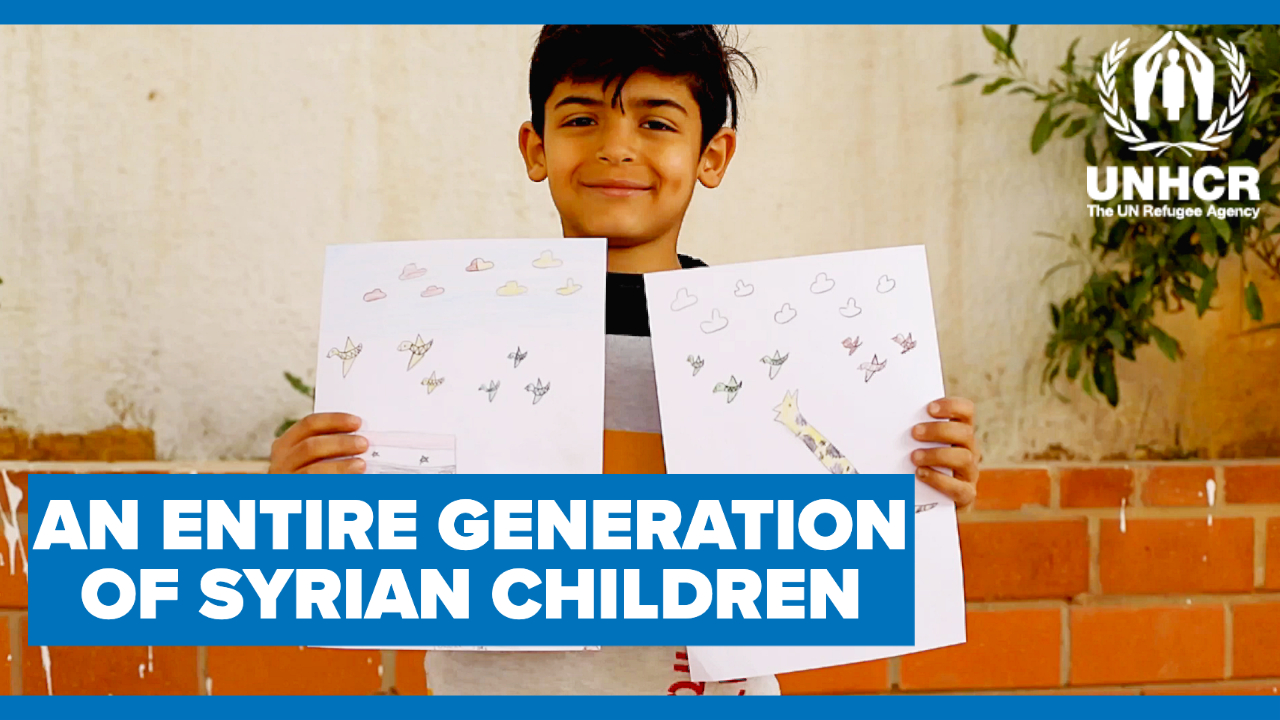Iran's largest refugee camp closes
Iran's largest refugee camp closes

ASHRAFI, Iran, Feb. 9 (UNHCR) - Nadia al-Kharani looked on in wonder at the remains of the camp that for over eight years had been her home. "It's all happened so fast," she said, "just a few weeks, and everyone has gone."
A few days ago, Nadia's husband left, too, crossing the border back into Iraq to look for accommodation in the southern port city of Basra for the family. Nadia has not heard from him yet, and looked on anxiously as neighbours loaded a truck full of her belongings, including doors and window frames.
"I don't know what we will find in Iraq," she says, "we have heard that it is hard to find houses there."
Nadia and her family were among the last refugees to leave Ashrafi Esfahini camp, in Khuzestan province.
Until just a few months ago, Ashrafi, with over 12,000 Iraqi refugees, was Iran's largest camp, with a busy clinic and school run with support from the UN refugee agency, UNHCR. The camp opened in 1992 to cope with the influx of hundreds of thousands of refugees who fled southern Iraq to escape Saddam Hussein's brutal crackdown on a Shi'ite uprising following the end of the first Gulf war.
Today, nothing remains of Ashrafi but rubble and a few stones.
Iranian authorities officially closed Ashrafi camp over the weekend in the presence of the Chairman of UNHCR's Executive Committee (ExCom), the Swiss Ambassador at the United Nation's Geneva headquarters, Jean-Marc Boulgaris.
Boulgaris, on a week-long visit to Iran, said he was very pleased to take part in Iran's first camp closure for many years.
"The closure of Ashrafi camp is a very positive step, since it means that thousands of Iraqi refugees have now been able to go home," Mr Boulgaris said. "I hope that we will be able to follow with more closures in the weeks and months to come."
While Iran still shelters more than 100,000 Iraqis and some 1 million Afghan refugees, the vast majority live amongst host communities, and only a fraction live in the remaining 47 established refugee camps.
UN refugee agency staff worked through the night to help Nadia and the rest of Ashrafi's remaining refugees - 205 in all - to finish loading their belongings. Early on Sunday morning, a convoy of four buses and sixteen trucks left Ashrafi on its way to Shalamsheh border crossing point, where Ambassador Boulgaris was waiting to see them cross homewards.
Like all refugees repatriated by UNHCR, the Iraqis underwent mine-awareness training and were issued with Voluntary Repatriation Forms. Each person also received $20 to help cover travel expenses up to their home areas, and to help meet their immediate needs back in Iraq.
The UN's modest effort to help Iraqi refugees who have been clamouring to return home since the government of Saddam Hussein fell last April has been fraught with difficulties. UNHCR currently does not have expatriate staff in Iraq since they were withdrawn in the wake of the August 2003 attack on the UN's Baghdad headquarters. The few remaining local staff operate under restrictive conditions. Convoys of returning refugees are met at the border by CPA (Coalition Provisional Authority) personnel, and then escorted into Basra.
During his visit in Iran, Boulgaris travelled to eastern Iran's Dogharoun frontier post, where he saw Iran's other major repatriation programme, the facilitated return of Afghan refugees. Since April 2002, over 660,000 Afghan refugees have gone back to their homeland. He also visited a Voluntary Repatriation Centre in Mashad, where refugees register when they want to repatriate with the help of UNHCR.
While in Tehran, the UNHCR official met with the Islamic Republic of Iran's Deputy Foreign Minister, Mr. Gholam Ali Khoshroo, as well as the Deputy Interior Minister, Mr. Gholam-Hussein Bolandian.
Boulgaris thanked the officials for Iran's long-standing hospitality to refugees from Iraq and Afghanistan. During a news conference at the end of his mission, Boulgaris paid tribute to both the Iranian authorities and UNHCR staff.
"I have been very favourably impressed with what I saw during my visit here with the work of UNHCR staff in Iran, and also with the Iranian authorities' treatment of refugees, and the good cooperation between the authorities and UNHCR," he said.
The Executive Committee is UNHCR's decision-making body of 64 countries that meet every year in Geneva to review the agency's programmes and budgets. The Committee's chairman normally undertakes field visits during his tenure. After leaving Iran late Sunday, Boulgaris was set to travel to Sri Lanka.







